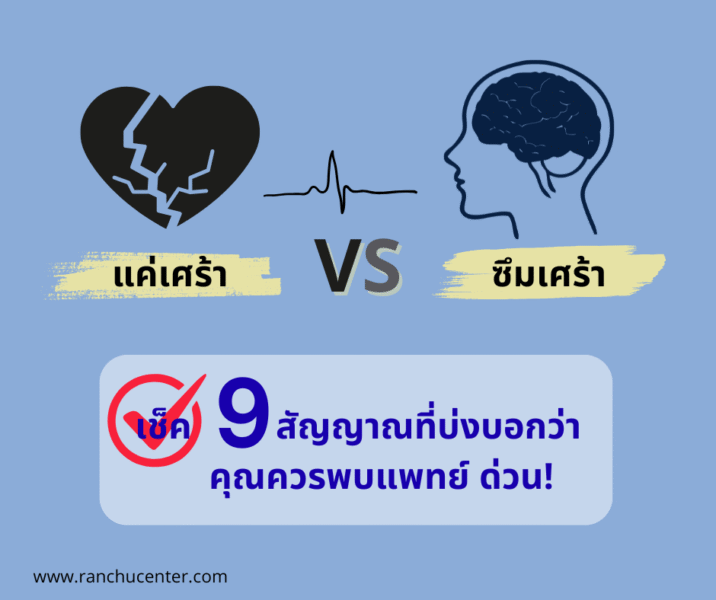How to Manage Stress: Effective Techniques for a Balanced Life
เวลาอ่านโดยประมาณ: 15 นาที
Key Takeaways
- Understanding stress is the first step to effective stress management.
- Distinguishing between stress and anxiety is crucial for appropriate handling.
- Mindfulness, meditation, and physical activity are key stress management techniques.
Table of contents
In today’s fast-paced world, learning how to manage stress is vital for maintaining mental and physical health. Stress affects everyone, and the way we handle it can drastically influence our overall well-being. Ineffective stress management can lead to various health problems, affecting not only our productivity but our relationships and quality of life as well.
Understanding and implementing stress management techniques can help reduce these negative impacts, fostering a happier and more productive life. This blog post will delve into various strategies and tips on how to manage stress effectively, offering insights into some of the most practical practices available to you.
Understanding Stress
Stress is the body’s natural reaction to any change that requires an adjustment or response. Whether it stems from work pressure, family responsibilities, or financial issues, stress is something we all encounter daily. Recognizing stress and its causes is the first step to effectively managing it.
It’s important to distinguish between stress and anxiety. Stress usually arises in response to a specific situation—like meeting a deadline or moving to a new home. In contrast, anxiety can be more generalized and persistent, lingering even when there is no identifiable stressor.
Unmanaged stress can have significant impacts on both physical and mental health. According to the American Psychological Association, long-term stress can contribute to severe problems like heart disease, obesity, diabetes, and problems with memory. Understanding this distinction and the consequences of unmanaged stress is crucial in our journey to learn stress management techniques.
Effective Stress Management Techniques
Effectively managing stress requires specific strategies, often referred to as best stress management practices. These strategies can empower individuals, allowing them to cope with stress more effectively.
Mindfulness is the practice of being present in the moment without judgment. This technique can be incredibly effective in reducing stress and enhancing focus.
Meditation complements mindfulness by promoting relaxation and reducing anxiety. Here are some meditation techniques you might try:
– Guided Imagery: A technique where you imagine a peaceful scene to direct your thoughts away from stress.
– Body Scan: Focus on different body parts, acknowledging sensations without judgment.
Exercise is another effective stress management technique. Engaging in physical activity releases endorphins, which are natural mood boosters. Regular exercise can also provide a healthy outlet for frustration. Here are some activities you can try:
– Walking: This simple form of exercise can improve your mood and promote relaxation.
– Yoga: Combines physical postures with breathing techniques to enhance relaxation and focus.
– Team Sports: Participating in group activities provides social support while keeping you active.
Another important stress management technique is effective time management. Better organization can significantly reduce stress levels. Here are some tips:
– Prioritize Tasks: Identify the most critical tasks to tackle first.
– Set Realistic Goals: Ensure your goals are achievable within the time constraints you have.
– Break Projects into Manageable Steps: Divide larger projects into smaller, more manageable tasks to prevent feeling overwhelmed.
All these practices contribute to better stress management strategies that enhance your ability to face daily challenges effectively.
Practical Stress Relief Tips
In addition to stress management techniques, there are several actionable stress relief tips that you can easily integrate into your daily life for immediate stress reduction.
Deep breathing is a simple yet effective way to reduce stress. Here’s how to do it:
1. Inhale deeply for a count of four, filling your lungs completely.
2. Hold your breath for a count of four.
3. Exhale slowly for a count of four.
Repeating this process several times can help calm your mind and body, making it one of the best stress relief tips available.
Setting aside time for short breaks throughout the day can minimize stress levels.
– Scheduled Breaks: Set specific times for breaks where you can stretch or step away from your tasks.
– Short Walks: A brief walk, even if it’s just around your home or office, can refresh your mind and relieve tension.
Taking these small rest periods can significantly improve your focus and reduce stress throughout your day.
Good nutrition plays a crucial role in stress management. Foods rich in whole grains, fruits, and vegetables can stabilize your mood. Here are simple tips to include more healthy options in your diet:
– Plan Your Meals: Including a variety of colorful fruits and vegetables keeps meals interesting and nutritious.
– Stay Hydrated: Drinking enough water can enhance mood and energy.
– Limit Caffeine and Sugar: High amounts can increase anxiety, so moderation is key.
Paying attention to your diet can serve as a valuable component of your stress management techniques.
Coping Strategies for Stress and Anxiety
In addition to the methods already discussed, there are specific stress and anxiety coping strategies we can implement for added support.
Having a solid support system is essential. Connecting with friends and family for emotional support can provide comfort and relief during stressful times.
Importance of Social Connections:
– Emotional Support: Talking about your stressors with others can lighten the mental load.
– Shared Experiences: Relating to others about common challenges helps normalize your feelings.
Journaling serves as a tool for reflection, allowing you to express thoughts and emotions. This practice helps identify stress triggers, giving you insight into your responses.
– Daily Entry: Spend a few minutes each day writing about your feelings.
– Reflective Practice: Occasionally review your journal entries to identify patterns in your stress.
By integrating journaling into your routine, you can enhance your stress and anxiety coping strategies, and develop a deeper understanding of how to manage stress.
อ้างอิง:Understanding Stress Management Techniques, Coping Strategies for Stress and Anxiety
Integrating Stress Management into Daily Life
Making stress management techniques a consistent practice is essential for long-term well-being. Here are some insights into how to do this effectively:
Adopting simple daily habits can help make stress management a natural part of your routine. Consider:
– Morning Mindfulness: Start your day with a few minutes of mindfulness to set a positive tone.
– Physical Activity Schedule: Set specific times each week dedicated to physical activities.
Self-care plays a crucial role in maintaining mental health. Activities like reading, pursuing hobbies, or spending time in nature are all ways to prioritize well-being.
Examples of Self-Care Activities:
– Reading: Engaging with a good book can transport you to another world and help you unwind.
– Hobbies: Dedicating time to your passions provides a fulfilling outlet.
Maintaining these subject positions contributes to improved stress management techniques, reinforcing your ability to face stressors effectively.
อ้างอิง:Importance of Self-Care, Mindfulness Meditation for Stress Relief, Stress Management in Daily Life
สรุป
In recap, effectively learning how to manage stress is essential for maintaining overall well-being. Throughout this post, we have explored various stress management techniques, practical stress relief tips, and coping strategies designed to help you on your journey.
Remember, the process of managing stress is personal, and different techniques work for different individuals. I encourage you to experiment with these practices to discover what aligns best with your needs and lifestyle.
For more resources on stress management and overall well-being, stay connected with us! We invite you to share your insights or strategies in the comments section below, enriching the conversation for everyone who seeks to learn how to manage stress effectively.
อ้างอิง:Understanding Stress Management Techniques, Coping Strategies for Stress and Anxiety, Importance of Self-Care, Mindfulness Meditation for Stress Relief, Stress Management in Daily Life
































